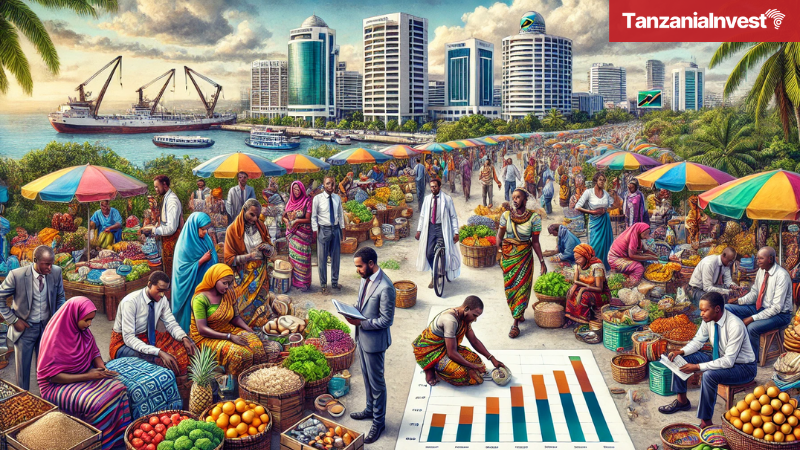According to the latest Afrobarometer 2024 survey conducted in Tanzania, Tanzanians express growing approval of the government’s economic management but still face significant financial hardships daily.
This survey, conducted by Research on Poverty Alleviation (REPOA) on behalf of Afrobarometer, included face-to-face interviews with a national sample of 2,400 Tanzanians between August and September 2024.
The survey reveals that 39% of Tanzanians describe the country’s economic condition as “fairly good” or “very good”, reflecting a notable increase from 30% since 2022.
Conversely, the share of respondents who rated the economic state negatively dropped from 54% in 2022 to 38% in 2024, signaling a positive shift in public perception.
Additionally, 67% of Tanzanians believe the government is managing the economy well, and53% commend its efforts to improve the living standards of the poor.
However, challenges persist, with nearly two-fifths (38%) of respondents rating their living conditions as “fairly bad” or “very bad.” Women reported worse living conditions (41%) compared to men (35%).
The survey also highlights regional disparities in personal living conditions. In urban areas, 37% of respondents rated their living conditions as “fairly bad” or “very bad,” compared to 39% in rural areas.
The data further reveals economic hardships experienced over the past year. More than 84% of respondents reported a lack of cash income at least once, with 39% stating they went without cash “many times” or “always.”
Other forms of deprivation were also prevalent, with nearly half of Tanzanians reporting a lack of water (48%) or medical care (47%) at least once.
Respondents also identified their top priorities for government action. Health services emerged as the most pressing concern, cited by 45% of participants, followed by water supply (36%) and infrastructure/roads (34%).
Other notable concerns included electricity (16%), unemployment (20%), and education (19%).
The Afrobarometer Survey
The Afrobarometer report is a product of Afrobarometer, a Pan-African, non-partisan survey research network dedicated to providing reliable data on the views and experiences of African citizens regarding democracy, governance, economic conditions, and quality of life.
Since its inception in 1999, Afrobarometer has conducted surveys across up to 42 African countries, offering insights into societal trends and governance performance across the continent.
The findings have a margin of error of +/-3 percentage points at a 95% confidence level with previous Afrobarometer surveys conducted in 2022, 2021, and earlier rounds dating back to 2001.










